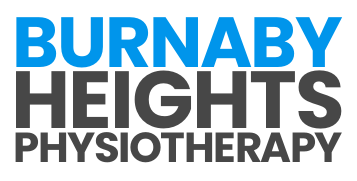
How Physiotherapy Supports Fitness: Tailored Plans for Optimal Health
August 15, 2025
Supporting Acupuncture with Daily Habits: Lifestyle, Nutrition, Exercise, and More
September 15, 2025Customizing acupuncture plans can significantly enhance the effectiveness of treatment by tailoring sessions to suit the unique needs of each individual. Everyone has distinct health concerns and recovery goals, which is why a one-size-fits-all approach is rarely sufficient. In this blog, we will explore the importance of personalized acupuncture plans, the factors that practitioners consider when creating them, the frequency of updates needed, and how acupuncture can be integrated with other therapies for optimal results.
What Does Customizing Acupuncture Plans Mean?
Customizing acupuncture plans involves tailoring the treatment to meet the specific needs, conditions, and goals of the individual receiving it. This personalized approach allows for greater attention to the unique aspects of a person’s health profile, such as their lifestyle, current health status, and recovery objectives.
Key elements of a customized plan include an initial assessment to understand the individual’s condition, the selection of specific acupuncture points, and the integration of complementary therapies if needed. Practitioners may also consider the individual’s response to previous treatments and modify the plan accordingly to improve outcomes. For example, someone with chronic back discomfort may benefit from a combination of acupuncture points focused on relieving tension and additional lifestyle advice to prevent recurrence. Another example is an athlete requiring recovery from a sports-related concern, who might receive a plan that incorporates both acupuncture and physiotherapy to optimize recovery and enhance performance.
Why Is Personalized Treatment Important in Acupuncture?
Personalized treatment in acupuncture is important because it aligns the therapy with the individual’s unique health profile, fostering more effective and efficient recovery. This approach considers various aspects such as the individual’s lifestyle, specific conditions, and personal goals. It also allows adjustments based on the response to previous sessions, increasing the likelihood of success.
| Individual Needs | Each person has unique health concerns and conditions that require specific attention. Personalized treatment ensures these are directly addressed. |
| Enhanced Effectiveness | By focusing on specific acupuncture points relevant to the individual’s condition, the therapy becomes more effective, potentially providing faster relief. |
| Improved Client-Provider Relationship | A tailored approach fosters better communication and trust between the client and practitioner, which can enhance the overall treatment experience. |
| Holistic Integration | Personalized plans often include recommendations for integrating acupuncture with other therapies, providing a more comprehensive path to recovery. |
| Adaptability | Customized plans can be adjusted over time, ensuring they remain effective as the individual’s condition evolves. |
| Goal-Oriented Approaches | Personalization allows the treatment to align with the individual’s personal recovery goals, making the process more meaningful and motivating. |
In brief, personalized acupuncture treatment is essential for addressing individual needs effectively, enhancing the therapy’s impact, and ensuring a better overall experience for clients.
What Factors Are Considered When Creating a Custom Acupuncture Plan?
When creating a custom acupuncture plan, practitioners consider various factors to ensure the treatment is suited to the individual’s unique needs and circumstances. These factors include the individual’s current health status, lifestyle, and personal recovery goals. Additionally, the plan may need to adapt based on the individual’s response to treatment and any changes in their condition.
- Health Assessment: An in-depth health assessment helps identify the individual’s specific concerns and conditions, which guides the customization of the acupuncture plan.
- Lifestyle Evaluation: Understanding the individual’s lifestyle, including stress levels, physical activity, and diet, can inform the selection of acupuncture points and complementary therapies.
- Current Symptoms: The severity and type of symptoms experienced by the individual play a crucial role in determining the focus of the treatment.
- Previous Treatment Response: Feedback on how the individual responded to previous acupuncture sessions can help refine the plan for better results.
- Medical History: A comprehensive review of the individual’s medical history ensures that the treatment plan takes into account any past conditions or interventions.
- Recovery Goals: The individual’s personal recovery or performance goals are crucial for tailoring the treatment to meet their desired outcomes.
- Frequency of Sessions: The plan may include recommendations for the frequency and duration of acupuncture sessions, based on the individual’s needs and objectives.
Overall, a custom acupuncture plan is carefully designed by considering a variety of factors to ensure it effectively meets the individual’s specific health needs and goals.
How Often Should a Customized Acupuncture Plan Be Updated or Changed?
A customized acupuncture plan should be updated or changed based on the individual’s progress, any changes in their condition, and their response to treatment. Regular assessments by the practitioner will guide these updates to ensure the plan remains effective and aligned with the individual’s evolving needs. Factors such as the emergence of new symptoms, changes in lifestyle, and feedback from the individual are also considered.
Regular communication between the practitioner and the individual is crucial for determining when updates are necessary. For instance, if an individual experiences significant improvement or a shift in their condition, the plan may need to be adjusted to focus on maintaining progress or addressing new areas of concern. Similarly, lifestyle changes such as increased stress levels or a change in physical activity could warrant a reassessment of the treatment strategy.
In summary, customized acupuncture plans should be regularly reviewed and updated as needed to ensure they remain effective and relevant to the individual’s current health status and objectives.
Can Acupuncture Be Combined With Other Therapies in a Customized Plan?
Yes, acupuncture can be effectively combined with other therapies in a customized plan to enhance treatment outcomes. This integrative approach allows for the treatment to address various aspects of an individual’s health, providing a more comprehensive pathway to recovery. Commonly combined therapies include physiotherapy, massage, and lifestyle modifications such as diet and exercise.
| Physiotherapy Integration | Combining acupuncture with physiotherapy can enhance the benefits of both treatments, particularly for conditions involving physical discomfort or mobility issues. |
| Massage Therapy | Acupuncture and massage therapy can work together to relieve tension, improve circulation, and promote relaxation, offering a holistic approach to recovery. |
| Dietary Adjustments | Incorporating dietary advice can support the body’s natural repair processes, complementing the effects of acupuncture. |
| Exercise Regimens | Tailored exercise plans can be integrated to improve strength and flexibility, providing long-term benefits alongside acupuncture. |
| Stress Management | Techniques such as meditation or yoga can be combined with acupuncture to manage stress, enhancing overall well-being. |
| Chiropractic Care | For individuals with musculoskeletal concerns, combining acupuncture with chiropractic care can provide a more targeted approach to recovery. |
In short, integrating acupuncture with other therapies creates a comprehensive treatment plan that addresses multiple aspects of health, enhancing the overall effectiveness of the recovery process.
How Do Practitioners Adjust Acupuncture Plans Over Time?
Practitioners adjust acupuncture plans over time by continually assessing the individual’s progress, response to treatment, and any changes in their health status. This dynamic approach ensures that the treatment remains effective and aligned with the individual’s evolving needs. Adjustments may involve changing the frequency of sessions, selecting different acupuncture points, or incorporating additional therapies.
- Regular Assessments: Practitioners conduct regular assessments to monitor progress and make necessary adjustments to the treatment plan.
- Feedback Incorporation: Feedback from the individual regarding their experience and outcomes is crucial for refining the plan.
- Symptom Changes: Adjustments are made if there are changes in the severity or type of symptoms experienced by the individual.
- Treatment Response: The individual’s response to acupuncture is closely monitored, and the plan is adjusted to enhance effectiveness.
- Goal Reevaluation: As recovery goals are met or evolve, the treatment plan is modified to align with new objectives.
- Lifestyle Changes: Any changes in the individual’s lifestyle, such as increased stress or physical activity, can prompt adjustments to the plan.
- New Health Developments: The emergence of new health concerns may necessitate a shift in focus within the acupuncture plan.
To sum up, practitioners regularly adjust acupuncture plans to ensure they continue to meet the unique and changing needs of each individual, thereby optimizing the treatment’s effectiveness.
Care Tailored to Your Needs
Customizing acupuncture plans is a pivotal approach to enhancing the effectiveness of treatment by addressing the unique needs and goals of each individual. This personalized strategy involves careful assessment, regular updates, and the integration of complementary therapies when beneficial.
At Burnaby Heights Physiotherapy, we are committed to providing tailored acupuncture plans that align with your health objectives, ensuring a comprehensive path to recovery. Residents in Burnaby are encouraged to contact us to learn more about how our customized acupuncture plans can support their health and recovery journey.
Frequently Asked Questions
What Are the Benefits of Customizing an Acupuncture Plan?
Customizing an acupuncture plan ensures that treatment is specifically tailored to an individual’s unique health needs and goals, enhancing the effectiveness and efficiency of the therapy.
How Does Lifestyle Affect an Acupuncture Plan?
Lifestyle factors such as stress levels, diet, and physical activity can significantly influence the design and success of an acupuncture plan, as they contribute to overall health and recovery.
How Is Progress Measured in Acupuncture Treatments?
Progress is typically measured through regular assessments, feedback from the individual, and observable changes in symptoms or health status, allowing for adjustments to the treatment plan as needed.
Can Acupuncture Help with Stress Management?
Yes, acupuncture can be an effective component of a stress management plan, often combined with other therapies like meditation or yoga to enhance relaxation and overall well-being.
What Should I Expect During an Acupuncture Session?
During an acupuncture session, you can expect a professional evaluation of your condition, the selection of specific acupuncture points, and a relaxing environment designed to support your recovery and health objectives.






